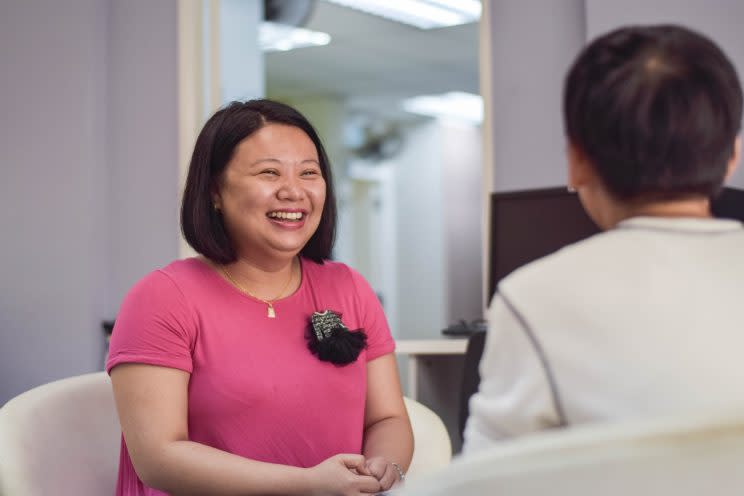Living with schizophrenia: 'I thought I had developed superpowers'
YOUR LIFE: Every human being has a story to tell. In this series, Your Life features personal accounts by Singaporeans detailing their respective trials in life and their courage to face them.

When I was 24, I thought I had developed superpowers.
I was watching the news when I heard a voice in my head telling me of accidents that were going to happen. I thought the television was talking to me, and that I could talk back to it if I tried.
My condition made me somewhat withdrawn from society – it didn’t help that I was already grappling with low self-esteem. So I kept my so-called ‘”superpower” a secret and didn’t tell a soul.
Soon the voices multiplied, and they followed me wherever I went. They were fragmented, as if I were listening to a conversation happening on the other side of a thick wooden door. I grew constantly paranoid of people following me and staring at me from open windows, and when I went to shopping malls, I was wary of anyone who so much as glanced my way.
I became fearful of crowds and dreaded going out of the house. I lost the ability to think clearly, and struggled to interact with others. For weeks I couldn’t sleep properly and my mind was in a constant blur. I was unable to hold on to a job that required long hours of work, and my self esteem plummeted further.
The voices grew worse. It got to a point where one day I found myself standing outside my neighbour’s door with a sharp object in my hand, and with no clear recollection of how I had ended up there.
Somebody called the police, and my body felt numb as I was brought to the station for questioning. After an assessment was done, the police referred me to the Institute of Mental Health, where I was eventually diagnosed with schizophrenia.
It seemed like my world was being torn down piece by piece.
The medical treatment came in heavy doses and with adverse side effects, too. There were times when my eyes would roll back in their sockets due to a lack of proper rest. I wouldn’t be able to see for at least fifteen minutes when this happened, and there would be a high-pitched ringing in my ears from time to time.
Fortunately, the medicine would stabilise the voices in my head and help to clear my mind of them.
Throughout my recovery, my family – in particular, my younger brother, mother, aunts and uncles – was my biggest support with my mum being my biggest pillar of strength. It was her unwavering love and perseverance that pushed me on to get better.
Recovery wasn’t easy; there were days where I would lie in bed, living aimlessly, and I could see how helpless and lost this had made my mother feel. She even began working from home in order to look after me.
“If people pull or push you, you can only move so much; if you don’t want to recover, you won’t. But if you move by yourself, you can make it happen,” she would say to me, and it made all the difference in my life.
I started exercising and taking eye supplements, and tried to fill my head with positive thoughts. Eventually, the side effects of the medication decreased.
I applied for a job at Caregivers Alliance, where I shared my experience with caregivers and also did outreach work – a huge step for someone with severe social anxiety, and who struggled to speak in public.
I then joined the Singapore Association for Mental Health as a community education officer. I shared my experiences in schools, and co-facilitated support groups for persons in recovery.
The stigma surrounding mental health is still as real and affecting as ever. While I have not experienced direct stigmatisation, it affected me in other ways.
My recovery was made harder due to the fact that I was afraid of accepting who I was, and found it hard to let others know about what I was suffering. In a way, I feel that this mindset is something that is drilled into society, and it is something I hope will one day change.
Despite what many people think, the mentally-ill are able to lead normal lives if they work towards it.
I was lucky to have had supporters behind me. When I was first diagnosed a decade ago, recovery seemed like a far-off, impossible dream. But I overcame my self-imposed limitations and became living proof that recovery is indeed possible. And now, as a peer support specialist, my dream is to break down the stigma surrounding people with mental illnesses, and be that same support for others.
Interview conducted by Rachel Oh.
Related stories:
How I went through two painful miscarriages
Living as a drug addict: ‘Did I try to kick the habit? Of course’
Singaporean orphan raised by nuns: ‘I didn’t think people would understand’
Follow Yahoo Lifestyle Singapore on Facebook.


